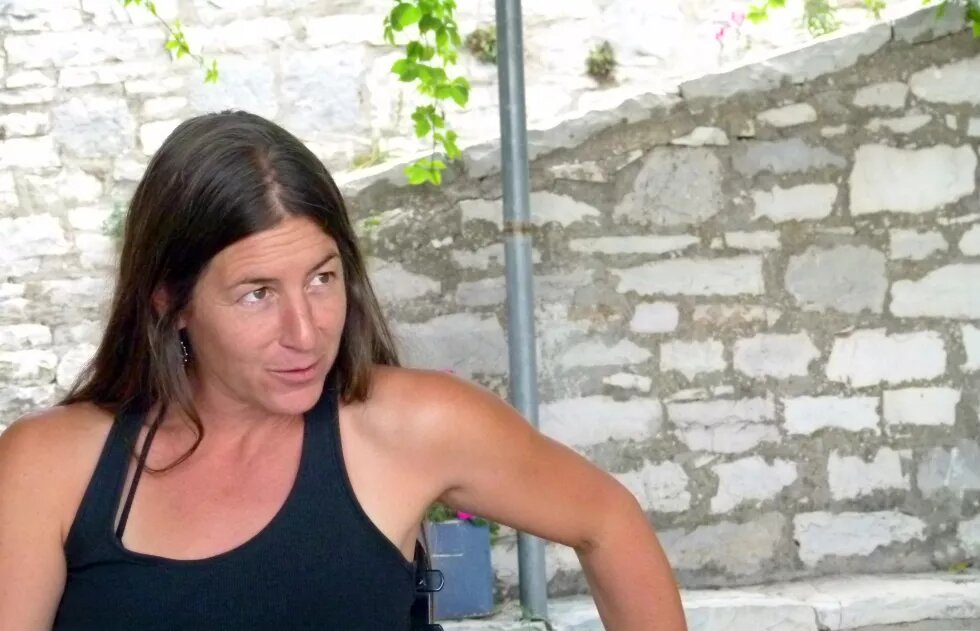
Lena Gerothanassi
Lena Gerothanassi left her studies in Larisa city 20 years ago and decided to get involved in handicrafts, especially weaving. She studied at the Lambriadios School of Housekeeping where she learned to weave on traditional looms, although she was impressed by their use of cotton which was not the local product. Therefore, she began to get in touch with elderly local women (known as Sarakatsanes) who taught her over a decade the circle of wool production: sheepshearing, thread making, natural colouring, loom operation, knitting, and the ‘ketses’ (felt) technique. She now owns a lab called “Saita” which is located at the “Roca” motel in Elafotopos village. She teaches weaving there and she introduces mostly young school people to loom operation and craft-making by preserving and sharing knowledge about clothing which is one of our most basic needs.
“As a craftsperson, I sensed the lack of Greek products”, she notes. “I wanted to weave with local wool but there was none in the market. The reason is that during the 90s all small industries in wool production were closed. There used to be numerous small textile workshops in Central and Northern Greece, but only three of them remain”. Lena Gerothanassi collaborated with other craftspeople and sheep farmers to create the Pokari Co-operative (pokari is the pile of wool obtained from a single sheepshearing). She says that their aim is “to restore the identity of the Greek sheep wool after 40 years. We use local wool types with specific characteristics, like karamaniko, karagouniko, kalarritiko, and boutsiko. We intend to identify those products with their origin of production, like a PDO (Protected Designation of Origin) process. A carpet made from kalarritiko wool of Tzoumerka region is a unique product because you are familiar with the farmer and the sheep graze location. Therefore, a different connection to the product is created.”
The entire project is based on the reevaluation of raw materials. “Nowadays, wool is considered a ‘byproduct’ and not the product of a sheep farmer.” Farmers don’t care much about sheepshearing because they know it won’t be properly utilised and they neither get the right price for it; during my 20 years of experience, the wool price has declined significantly from 30 to 2 cents per kilo. They don’t even weigh it; farmers want to get rid of it because it takes up too much space, and the traders send it to India or Turkey. Nevertheless, I can feel the farmer’s disappointment from the low prices that don’t even compensate for the sheepshearing cost; shearing is now done by crews while in the old days it was a process of cooperation and solidarity with each farmer helping the others.” The Co-operative’s immediate goal “is to create… sustainable cardigans, made only from Artas wool, a lowland breed with soft wool. With the mountain wools, we will produce little flokati rugs for urban houses, along with a line of carpets for modern ones. Because tradition is what the previous generations handed us over, it's up to us to make it relevant for our era. Otherwise, it smells mothballs!”.




